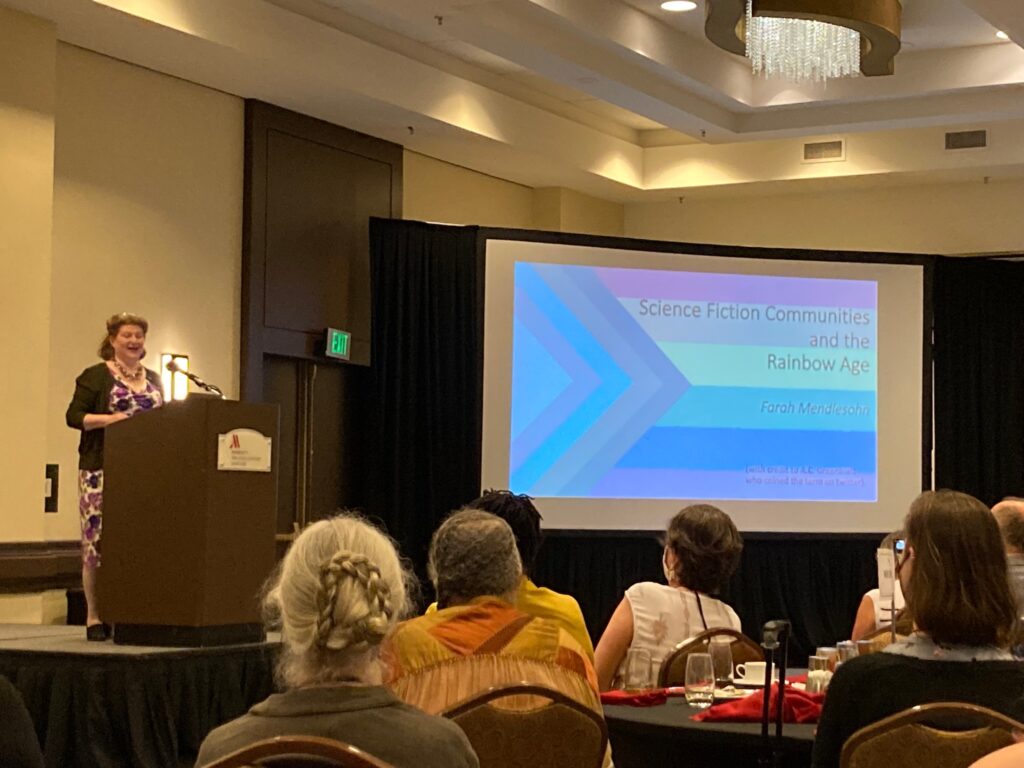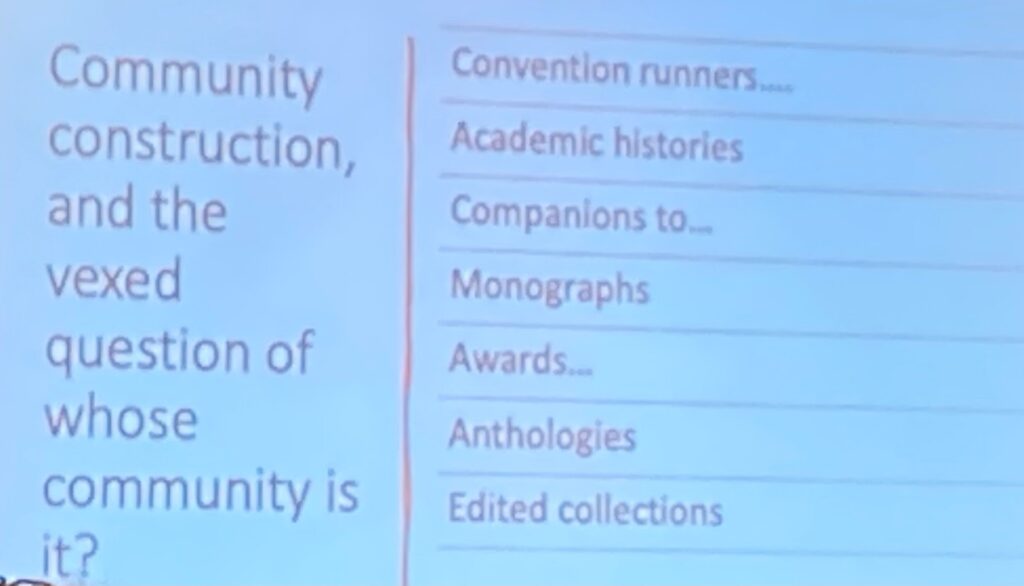Farah Mendlesohn‘s Guest Scholar talk at ICFA was on “Science Fiction Community and the Rainbow Age”. I quite like the idea of living in the Rainbow Age. ![]()
She covered a lot in a short time, but it was clear that Farah has so much more material that she didn’t have time to fit in the talk. I’d particularly like to hear her take on magazines, but I think we’ll have to wait for the full paper.
In the meantime, though, one of the most interesting moments of the talk was about anthologies — Farah talked about how for so many anthologies, she’d see the editor and know who the TOC was likely to be, because it’d be the people that editor tended to hang out with in the bar. Ouch. I am sure that’s true, and on the one hand, it’s a pretty standard function of the networking process, and on the other hand, it ends up being pretty damn exclusionary, and over time, perpetuates inequities.
Yet at the same time — when I edited _Survivor_ with JJ Pionke, I did an open call to avoid that kind of issue, and I almost drowned in how many submissions I got; winnowing through them took way more of a summer’s work than I’d anticipated, enough that I haven’t had the energy / willpower to take on editing an anthology since then. So I understand why so many anthology editors only do solicited submissions rather than open calls.
I’m not sure what the solution should be. I lean towards open calls + slush readers to help me get through the giant wave, personally.
I could also see editors who want to do solicited submissions making a serious effort to reach out beyond their bar friends to solicit other writers — but first, they need to actually know who those writers are, which may mean reading more broadly than they typically do…
Well, one approach might be to read some of these ‘resistance’ anthologies that are coming out — the ones from specific marginalized communities. A generalist editor could read through, build a list of names whose work they particularly like, and make sure those names are on the anthology call they send out. That might be a decent start?
Further thoughts welcome! (And if you were at ICFA, and there are any other aspects of Farah’s talk you’d like to address, feel free to drop those into the conversation too….)





